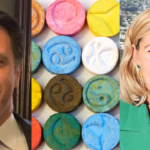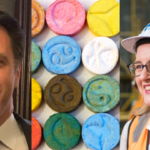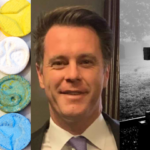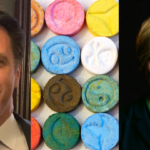As Victoria Trials Pill Testing, It’s Time to Save NSW Youths Not Punish Them with Death
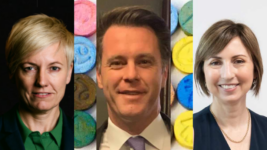
In late 2015, as the volume on the pill testing campaign was turning up due to a recent spate of festival deaths, there was a boat packed with pollies guarding the waters around prohibitive state drug regimes, with then NSW premier Mike Baird and police minister Troy Grant at the helm.
Back then the crew were mostly Coalition-types who were adamant that no pill testing would ever take place.
Yet, the waters got a bit choppy, and with staff turnover, eventually progressive ACT politicians jumped ship to hold our nation’s first sanctioned pill testing trial in 2018.
And viewed through the regular myopic eastern state lens, when Queensland abandoned ship earlier this year, it was left to NSW Labor premier Chris Minns and his Victorian counterpart Jacinta Allan, to navigate the vessel alone to continue pushing the 1980s Reaganite Just Say No approach to drugs.
Pill testing, a commonplace practice in Canberra since mid-2022, enables those in possession of un-quality-controlled illicit substances to have trained medics test their content, in order for the owner to have an informed idea and choice around what they might be about to ingest.
Allan, however, announced on Monday, that her government will be trialling pill testing from this summer on and she raised the point that, as a parent herself, this would protect young people, and, as is widely understood, the harm reduction intervention actually reduces drug use.
So, sadly, Minns was last seen doing circles of Sydney Harbour, wondering why his strategy of following past Liberal premiers in his politicking has left him last man sailing.
The writing is on the cubicle wall
NSW Greens MLC Cate Faehrmann welcomed the move on Tuesday, stating that Allan’s decision to allow drug checking services” came on the back of “a string of overdoses in that state,” and she added it was especially pleasing as four suspected overdoses had transpired in Melbourne overnight.
“While we don’t know for certain the cause of these tragic deaths at this stage, we’ve seen an increasing number of overdoses across the country being caused by the extremely deadly substance nitazene,” the Greens harm reduction spokesperson further pointed out.
Nitazene is a synthetic opioid about 500 times stronger than heroin, and like fentanyl before it, people are overdosing on it, when it’s cut with heroin, ketamine, cocaine or even MDMA, as illegal drugmakers don’t have to abide by quality control standards, and cutting drugs saves them money.
In her Tuesday statement, Faehrmann highlighted that Allan “made the decision to allow drug checking services in that state to prevent ‘every parent’s worst nightmare’.” And the Victorian leader also added that “no drug is ever truly safe, but people deserve to know if that one pill will kill”.
“Now Chris Minns needs to do the same before lives are unnecessarily lost in NSW,” Faehrmann continued, vocalising what many in the constituency are now reflecting upon.
“No matter what you think about drugs, you can’t stop people from taking them,” the Greens spokesperson for drug law reform made clear, “but you can stop people dying from them.”
Killing us softly with his denial
Pill testing is no silver bullet, just ask the NSW premier. And it’s certain that politicians in the Netherlands were aware of this on rolling out pill testing in 1992.
Indeed, it’s a fair bet that premier Allan knows this, but, unlike Minns, she’s also aware it can save lives and does reduce drug use.
CANTest, the fixed site pill testing or drug checking service available in the capital, allows people to have drugs tested with laboratory-grade equipment. The owner then knows what’s in them. And guess what, when things sound a little scary, they usually throw the drugs out and keep on trucking.
Queensland, the state formerly run by Joh Bjelke-Petersen, opened its fixed site pill testing facility in April. And Allan has said that after the trialling of the system at festivals, the state will likely establish a fixed pill testing site in Melbourne.
Parents may like to know that whilst drugs are tested, qualified staff have a chat with the person who uses illicit substances, and this is often the only time that these individuals do discuss and in turn contemplate, their use, which is likely more useful than being strip searched by NSW cops.
While Pill Testing Australia’s Dr David Caldicott raves about the Drug Information and Monitoring System (DIMS), operating in Europe since the 1990s, which stores the details of on-the-street drugs and can be used to warn the public about dangerous batches going around to prevent their use.
NSW: The Parochial State
The common cry made by Baird and Grant when they were steering the anti-pill-testing boat that has suddenly found itself dearth of a crew, is that pill testing encourages drug use.
But humans have been partaking in psychoactive substances for millennia without the persuasion of drug-checking services.
“Uniting NSW.ACT welcomes the actions being put into place by other state and territory governments that will make their communities safer,” said the local Uniting Church’s general manager of advocacy and external relations Emma Maiden.
“This includes the ACT government’s decision to use its budget to fund its drug checking service for another three years,” she continued, as well as “the Victorian government’s plans to have a pill testing trial in place before the summer festival season”.
Uniting NSW.ACT established the Fair Treatment drug law reform campaign, which is partnered by over 70 civil society organisations, including the NSW Bar Association, the NSW Council for Civil Liberties, Western Sydney University, Human Rights Watch and Justice Action.
Uniting, Faehrmann and other key drug reform advocates have been awaiting the NSW Drug Summit, which Minns promised to hold whilst electioneering. But he’s since delayed it and hidden behind the need to hold it, before he can even begin to consider any reforms, including pill testing.
Yet, Maiden points out that all the decisions regarding pill testing in the ACT, Queensland and Victoria have been made without the need of a drug summit.
“The NSW government has promised to hold a drug summit,” the official from the well-known Christian church continued, “yet that should not be a barrier to implementing lifesaving measures, like drug checking now.”
“The Minns government in NSW is looking increasingly isolated in terms of the sensible, simple policy measures that are being implemented and rolled out in a range of other state and territories,” Maiden said in conclusion.
“NSW was once a leader nationally in harm reduction.”


